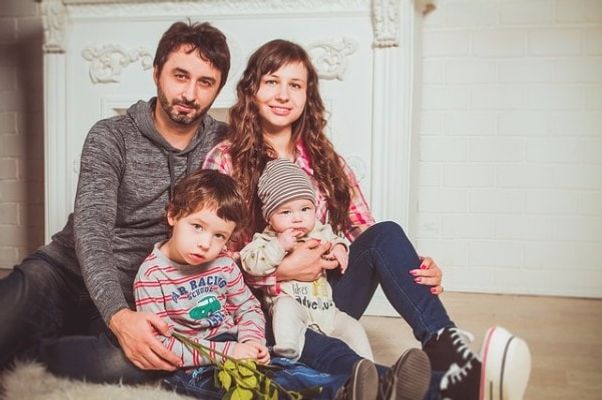2.2.2
Nuclear Family
The Nuclear Family
The Nuclear Family
The nuclear family is one of the most common UK family types despite changes in family patterns. The nuclear family is socially constructed, meaning that it's created by society.


What is a nuclear family?
What is a nuclear family?
- A nuclear family is a family consisting of two parents and their dependent child or children.


Importance in modern Britain
Importance in modern Britain
- The nuclear family is still seen as the traditional and stereotypical form of family in the UK.
- Research conducted by E. Lynch and A. Oakley suggests that the nuclear family is the typical family used in adverts as it is representative of a large portion of the population.


Media presentation
Media presentation
- The media presents the nuclear family as being made of three main figures:
- The father, who has the instrumental role (i.e. the breadwinner).
- The mother, who has the expressive role (i.e. the caregiver).
- Their dependent children.


What is the family life cycle?
What is the family life cycle?
- The family life cycle refers to the different types of families people go through in their lives.
- 'Most people tend to be part of a nuclear family at some point in their lives'. (Robert Chester)
Nuclear Family: Key Study
Nuclear Family: Key Study
A key study on the nuclear family is by the feminist Ann Oakley and is called ‘Conventional families’ (1982).


Point 1
Point 1
- Oakley describes conventional families as being ‘nuclear families that consist of legally married couples, who choose to be parents of one or more children’.


Point 2
Point 2
- Oakley explains why being part of a nuclear family can be a challenge.


Point 3
Point 3
- Even though Oakley's research was undertaken before British society became more progressive (e.g. accepting homosexual couples living together and getting married), she argues that society is moving forward and away from stereotypes.
1The Sociological Approach
1.1Introduction to Sociology
1.2Sociological Approaches
1.3The Consensus vs. Conflict Debate
2Families
2.1Functions of Families
2.2Family Forms
2.3Conjugal Role Relationships
2.4Changing Relationships Within Families
2.5Criticisms of Families
3Education
3.1Roles & Functions of Education
3.2Processes Within Schools
4Crime & Deviance
4.1The Social Construction of Crime
4.2Social Control
4.3Criminal & Deviant Behaviour
5Social Stratification
5.1Social Stratification
5.2Poverty as a Social Issue
6Sociological Research Methods
6.1Research Methods
6.1.1Research Design
6.1.2The Scientific Method
6.1.3Other Considerations
6.1.4Primary Sources
6.1.5Secondary Sources
6.1.6Surveys
6.1.7Sampling
6.1.8Questionnaires
6.1.9Interviews
6.1.10Observation
6.1.11Statistics
6.1.12Case Studies
6.1.13Longitudinal Studies
6.1.14Ethnography
6.1.15Experiments
6.1.16Small Scale Research
6.1.17End of Topic Test - Research Methods
Jump to other topics
1The Sociological Approach
1.1Introduction to Sociology
1.2Sociological Approaches
1.3The Consensus vs. Conflict Debate
2Families
2.1Functions of Families
2.2Family Forms
2.3Conjugal Role Relationships
2.4Changing Relationships Within Families
2.5Criticisms of Families
3Education
3.1Roles & Functions of Education
3.2Processes Within Schools
4Crime & Deviance
4.1The Social Construction of Crime
4.2Social Control
4.3Criminal & Deviant Behaviour
5Social Stratification
5.1Social Stratification
5.2Poverty as a Social Issue
6Sociological Research Methods
6.1Research Methods
6.1.1Research Design
6.1.2The Scientific Method
6.1.3Other Considerations
6.1.4Primary Sources
6.1.5Secondary Sources
6.1.6Surveys
6.1.7Sampling
6.1.8Questionnaires
6.1.9Interviews
6.1.10Observation
6.1.11Statistics
6.1.12Case Studies
6.1.13Longitudinal Studies
6.1.14Ethnography
6.1.15Experiments
6.1.16Small Scale Research
6.1.17End of Topic Test - Research Methods
Unlock your full potential with Seneca Premium
Unlimited access to 10,000+ open-ended exam questions
Mini-mock exams based on your study history
Unlock 800+ premium courses & e-books